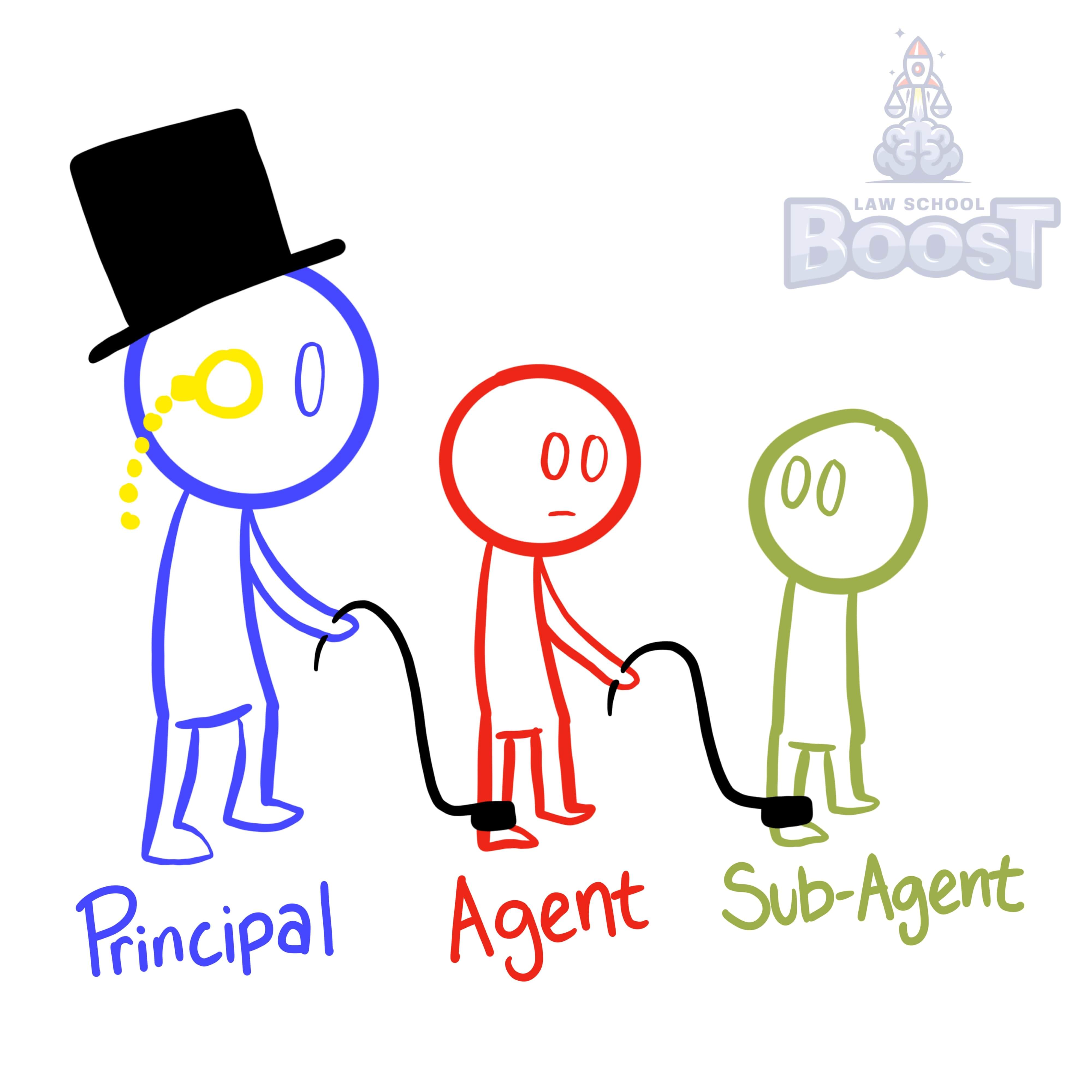❤️
Agency • Liability of Principal for Agent's Torts
AG#003
Legal Definition
A principal is vicariously liable for a subagent's tort only if there is (1) assent, (2) benefit, and (3) right to control.
Plain English Explanation
A subagent is someone who an agent of the principal has enlisted to assist them in pursuit of the principal's goals. In other words, when you hire Bob to hang fliers on doors, Bob becomes your agent; if Bob hires Sam to help him out, Sam is a "subagent." If Bob damages someone's door while hanging your flier, you may be liable. However, if Sam damages someone's door, your liability depends on establishing the 3 elements previously discussed. Typically, the principal does not assent to the subagent's help nor do they have the right to control the subagent – therefore, there is generally no liability.
Hypothetical
Hypo 1: Sam owns a pizza parlor and needs some marketing done. Sam hires Bob to place fliers on car windshields around the city. Bob says, "You know, this is a lot of work, mind if I bring Amy with me to help?" Sam says, "Sure, just get it done." While placing fliers around, Amy accidentally breaks a car's windshield. Result: Bob is Sam's agent. Amy is Bob's agent. Because Sam has assented (agreed) to let Amy help Bob, and benefits from Amy's actions, and ultimately has the right to control Amy (Sam could have told Bob, "No, I need you to do this yourself), then Sam is vicariously liable for Amy's tort of property damage.
Hypo 2: Same facts as Hypo 1, except Bob does not ask if Amy can help. Result: Without Sam being aware that Amy is assisting, though she is a subagent, she was neither assented to, nor does Sam have the right (or ability) to control her. Thus, Sam is not liable for her torts.
Hypo 2: Same facts as Hypo 1, except Bob does not ask if Amy can help. Result: Without Sam being aware that Amy is assisting, though she is a subagent, she was neither assented to, nor does Sam have the right (or ability) to control her. Thus, Sam is not liable for her torts.
Visual Aids


Related Concepts
Generally, when are an agent's actions within the scope of a principal-agent relationship?
What are the requirements for a principal-agent relationship to be established?
What is the difference between a frolic and a detour?
When are intentional torts considered within the scope of an agency relationship?
When is a borrowing principal liable for torts committed by a borrowed agent?
When is a principal liable for torts committed by an independent contractor?
When is a principal vicariously liable for torts committed by its agent?


